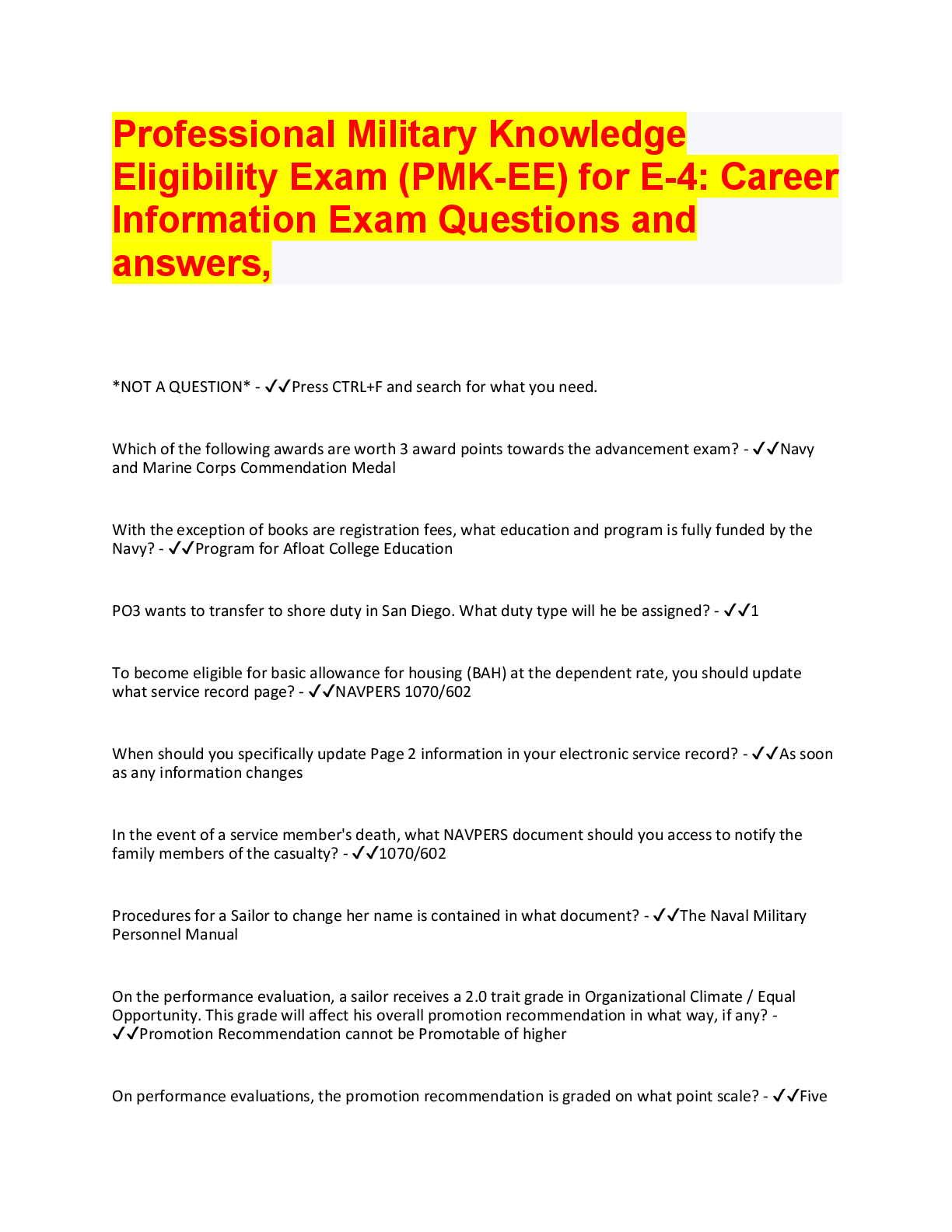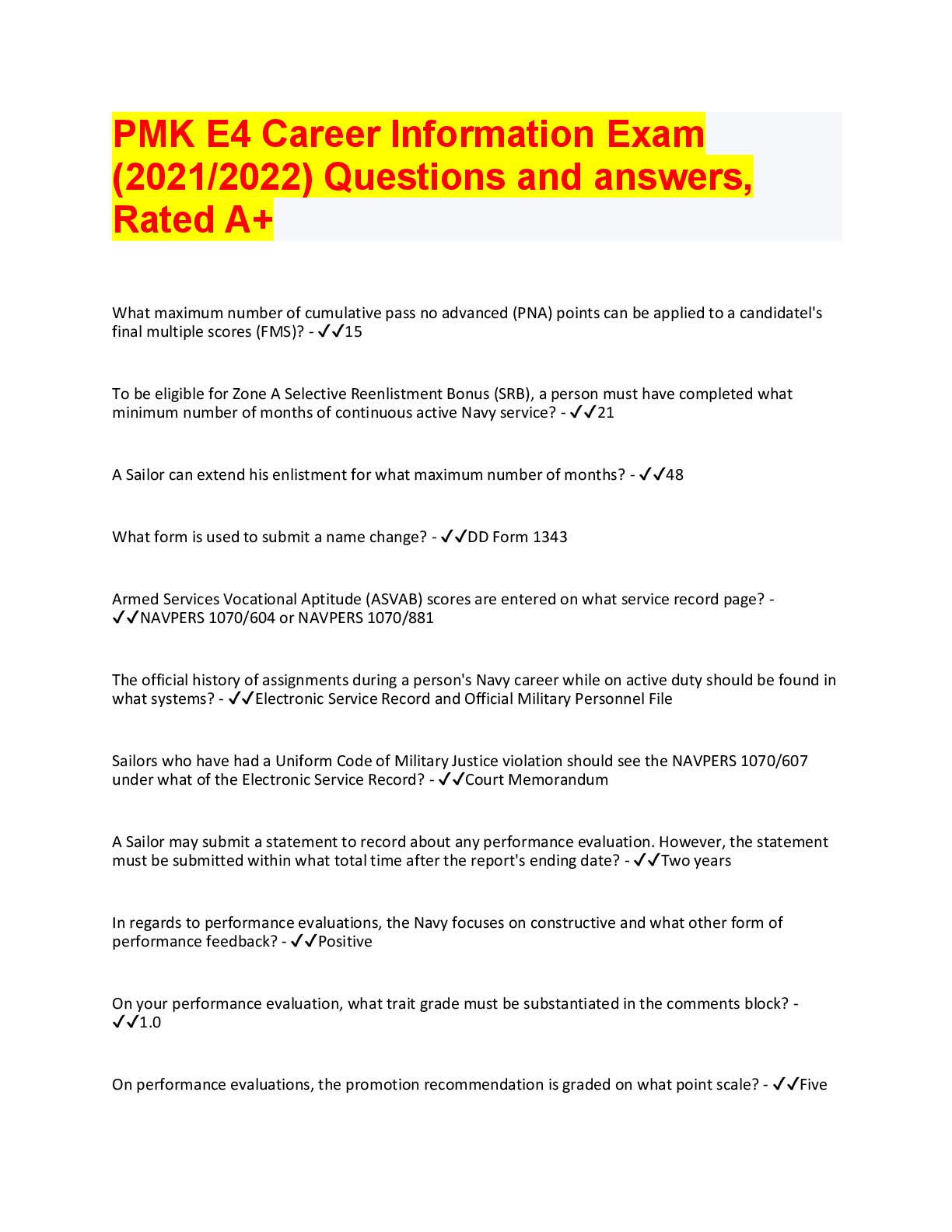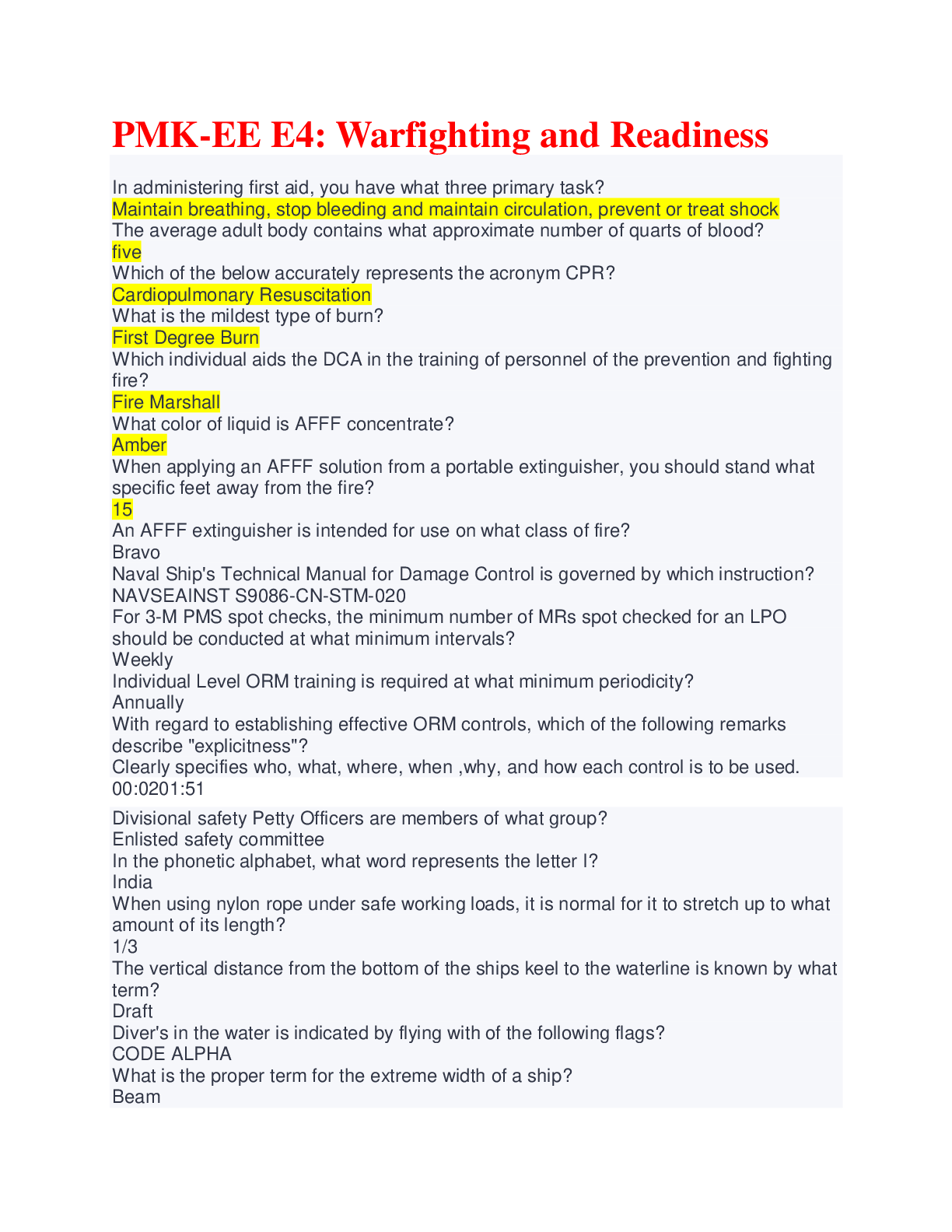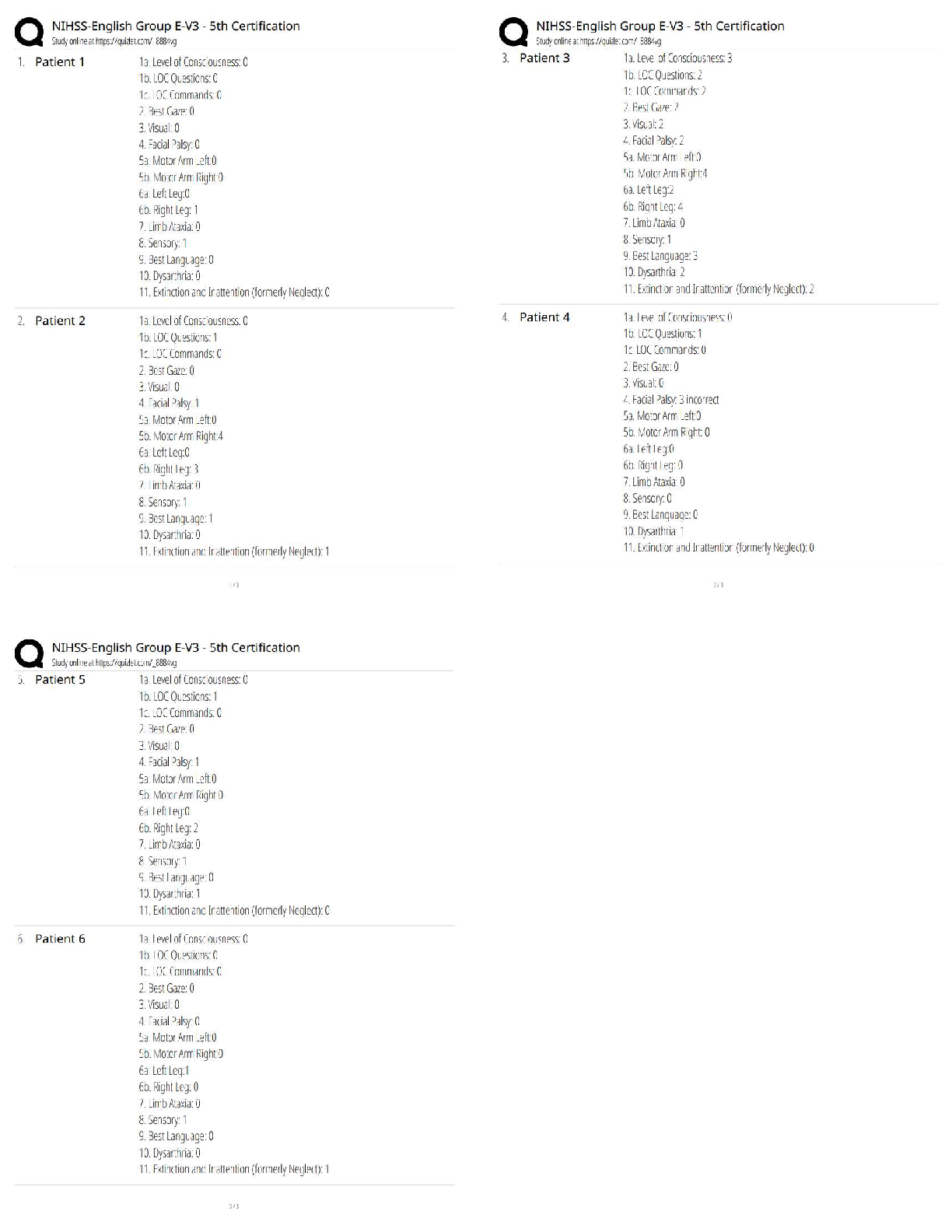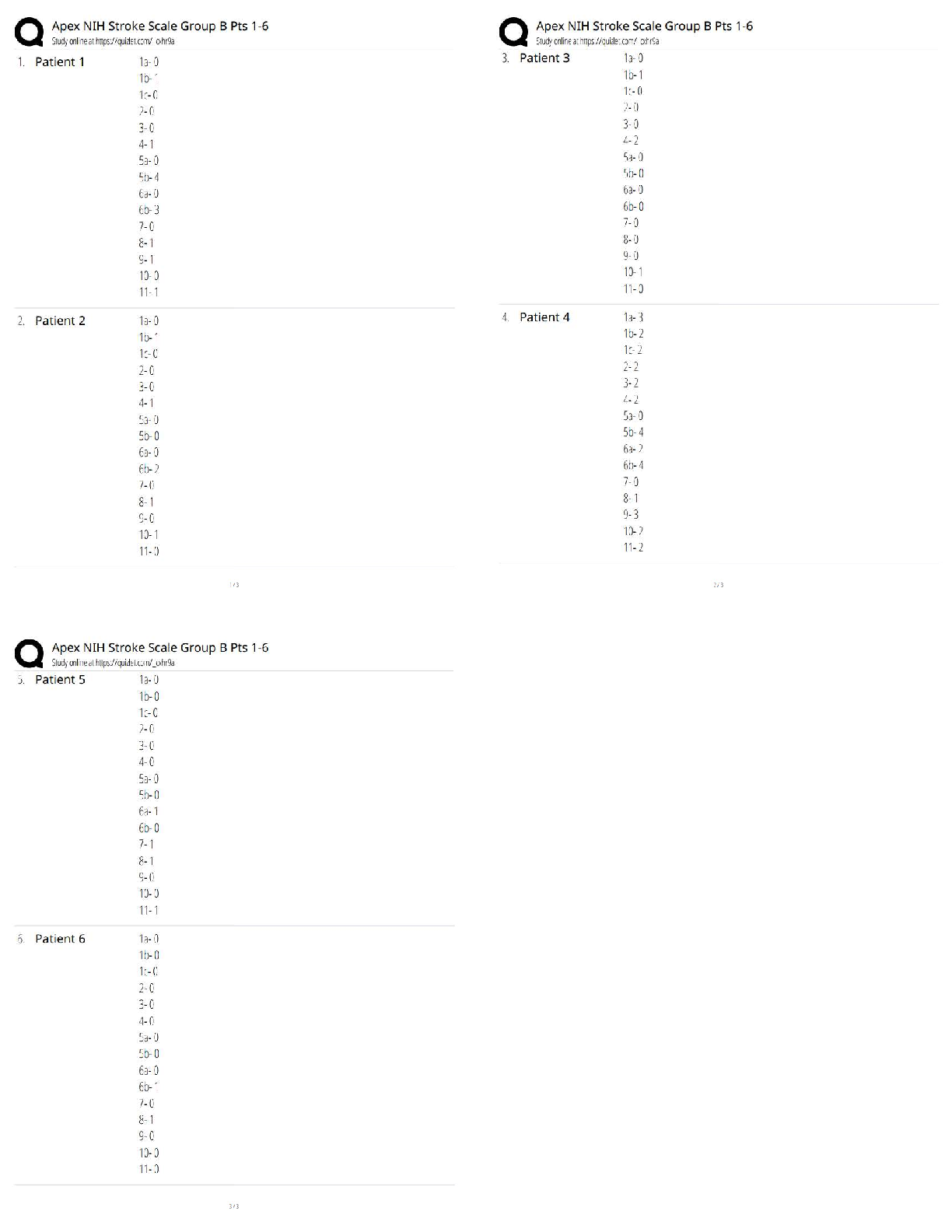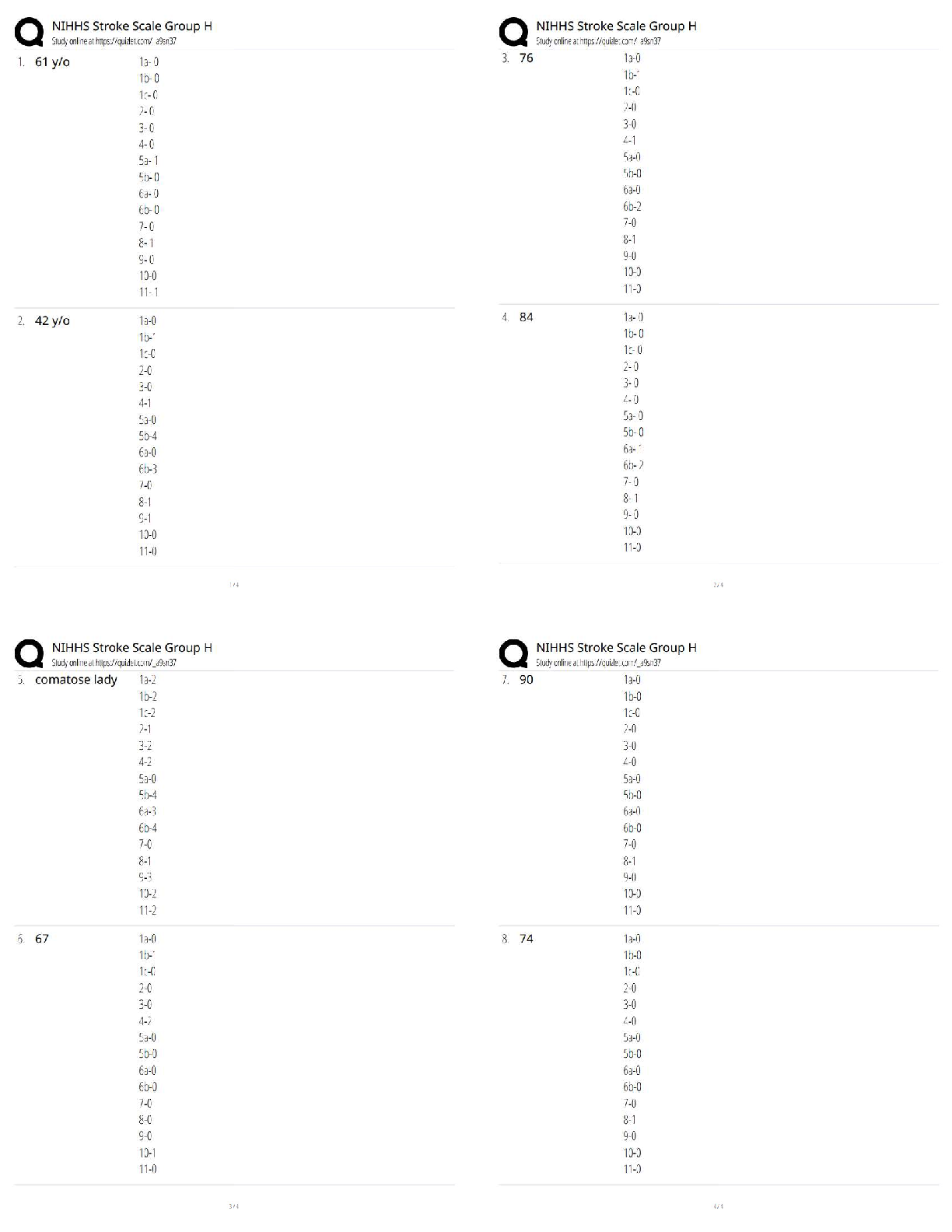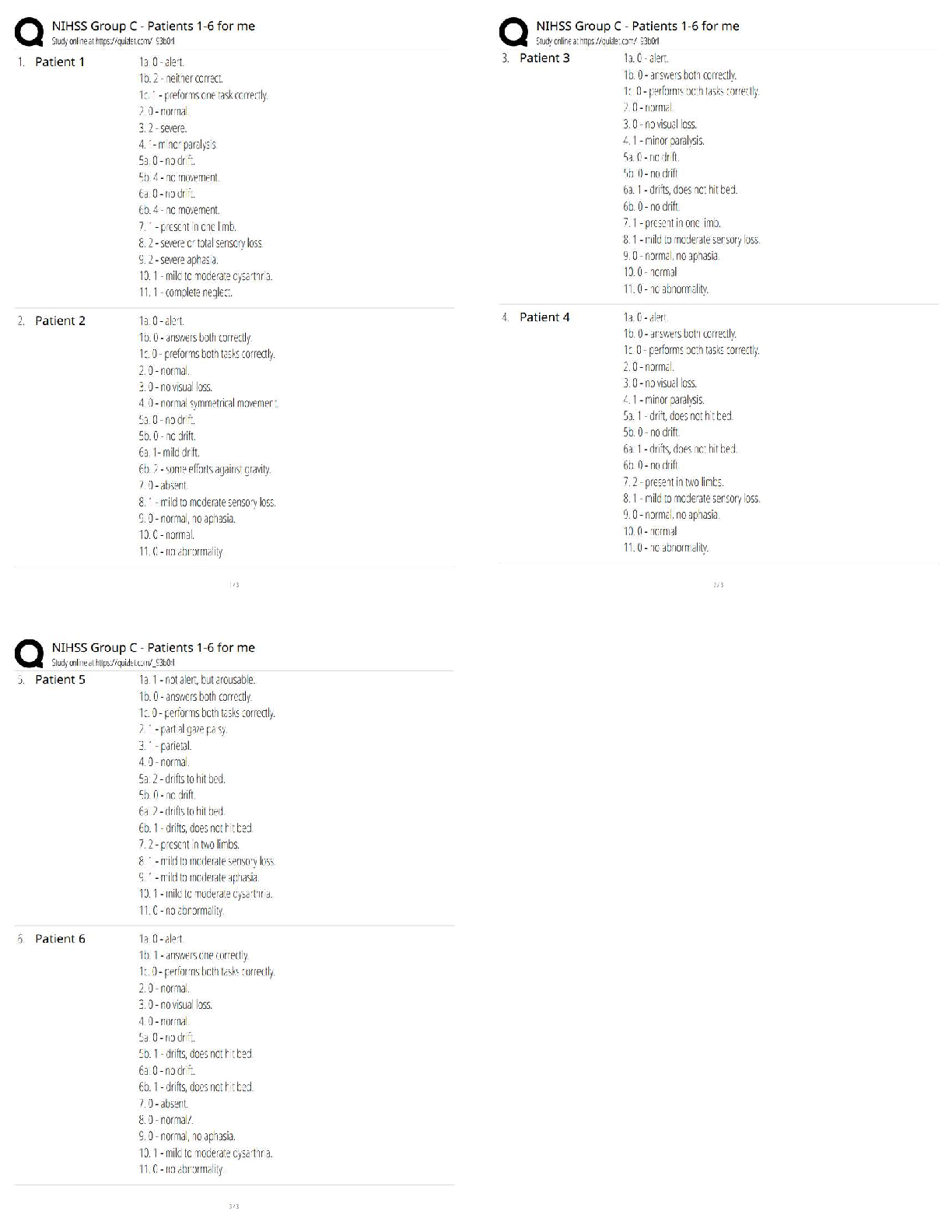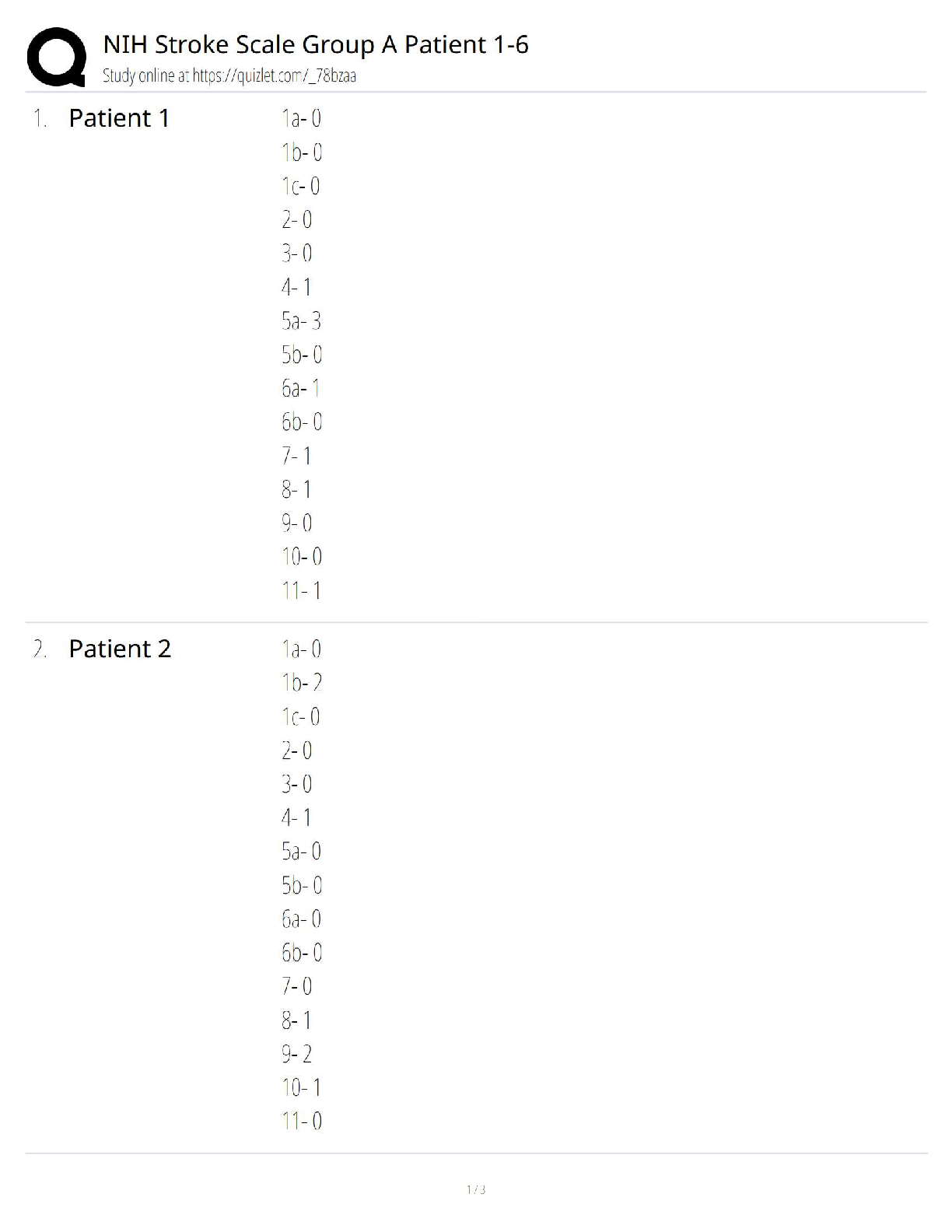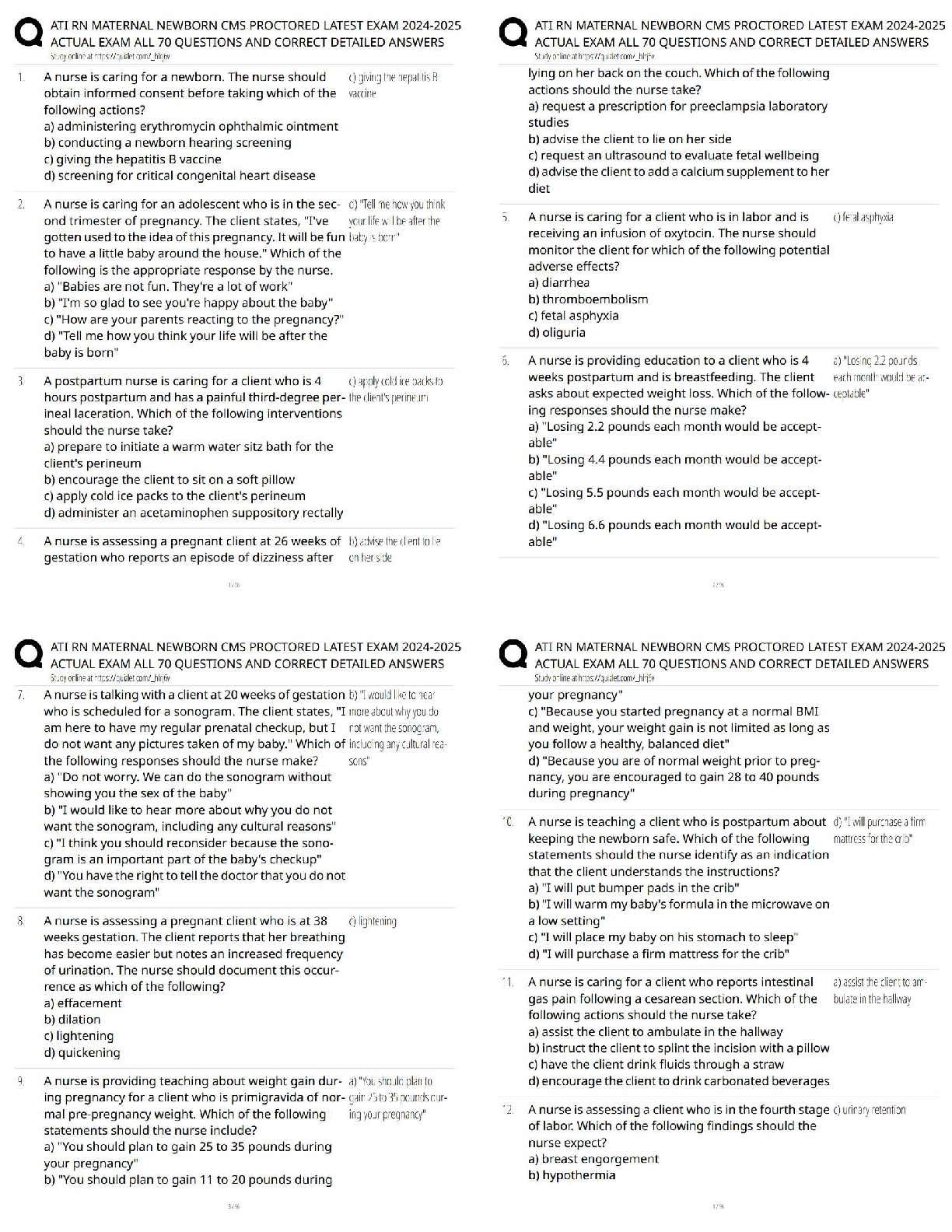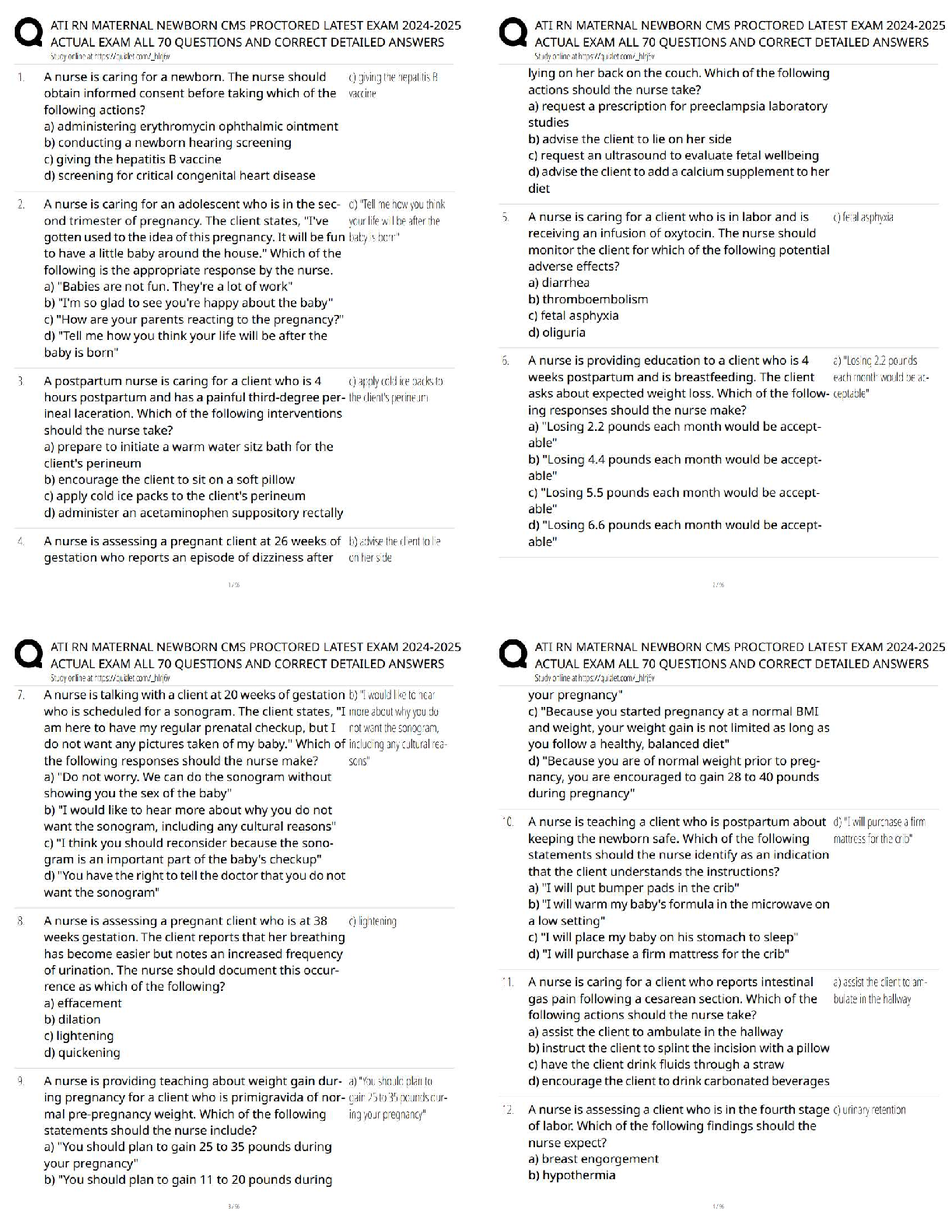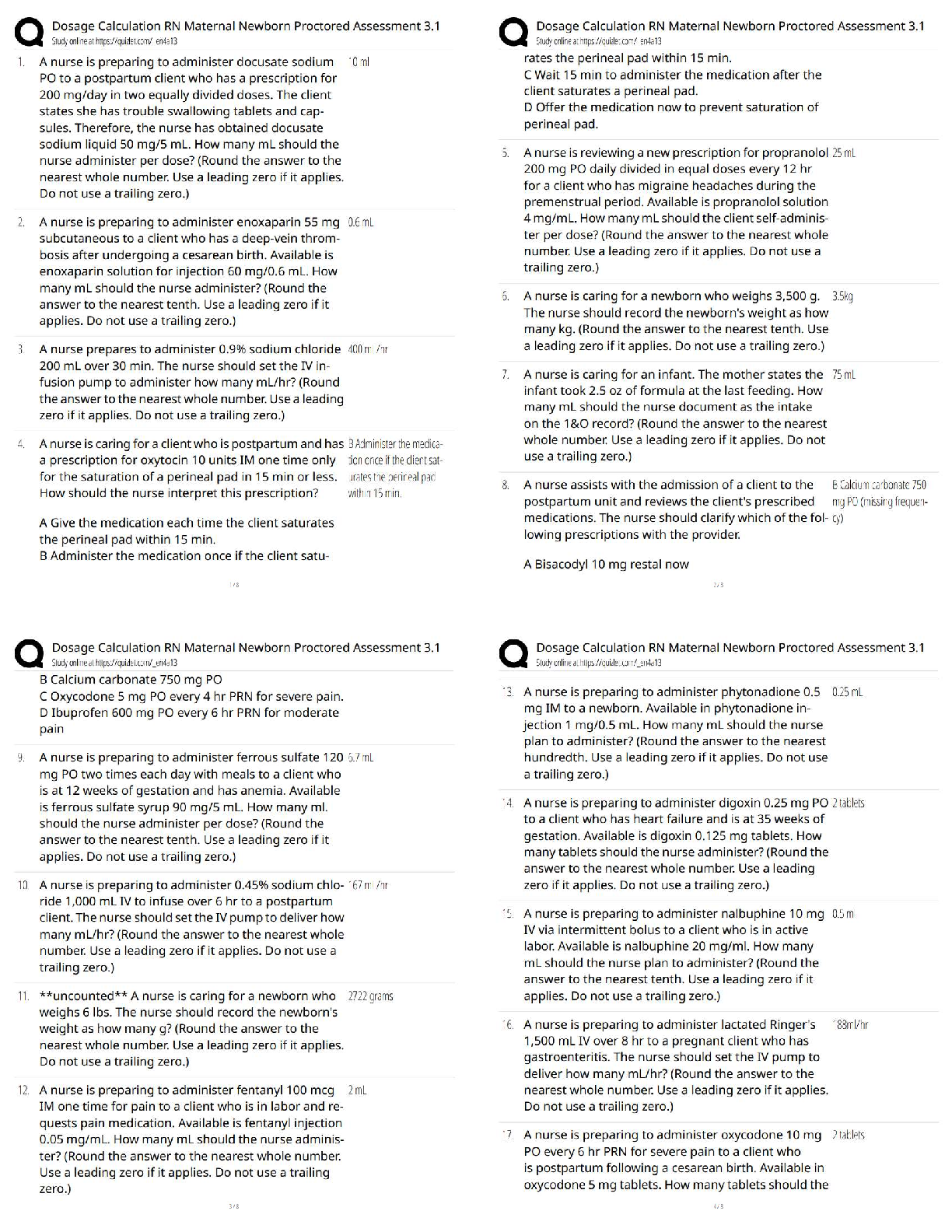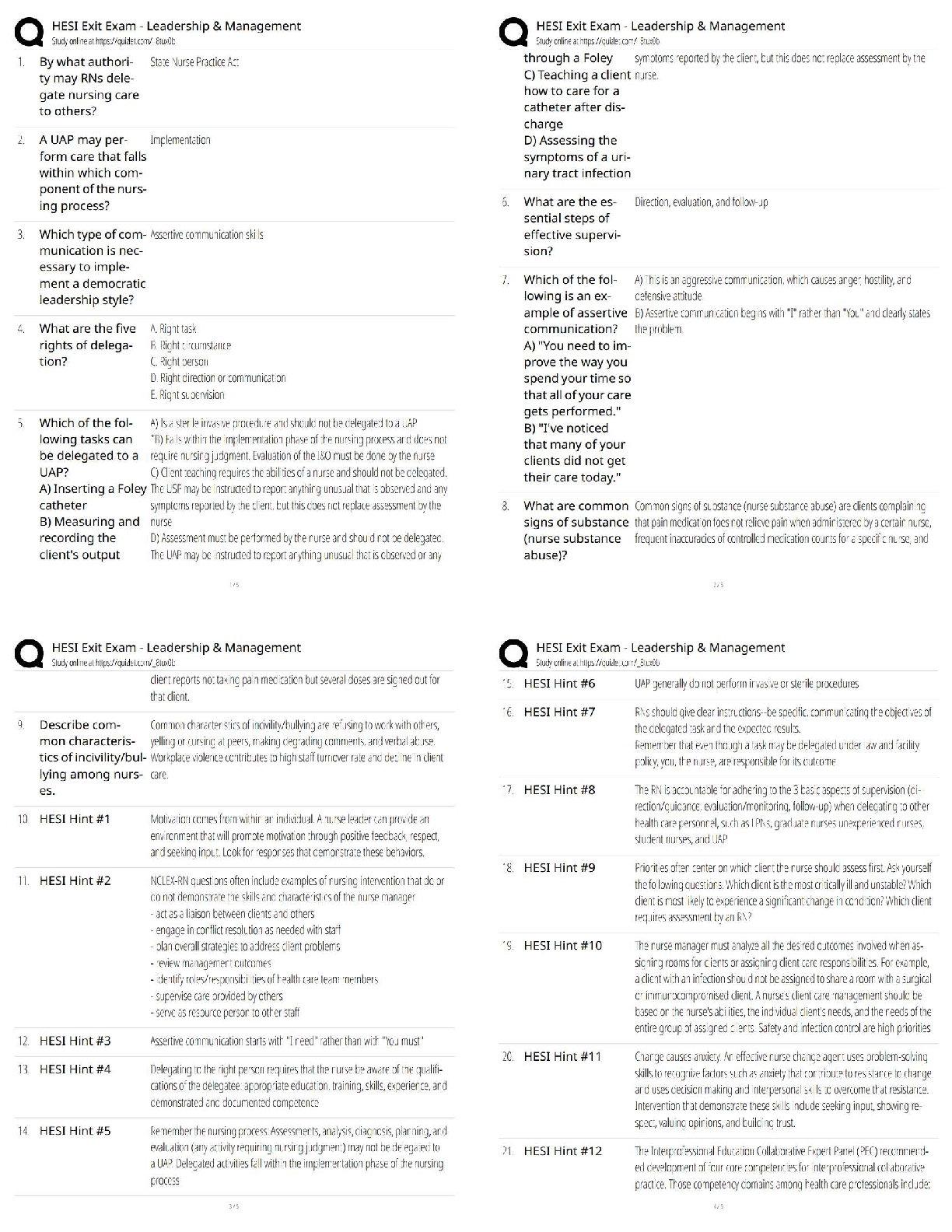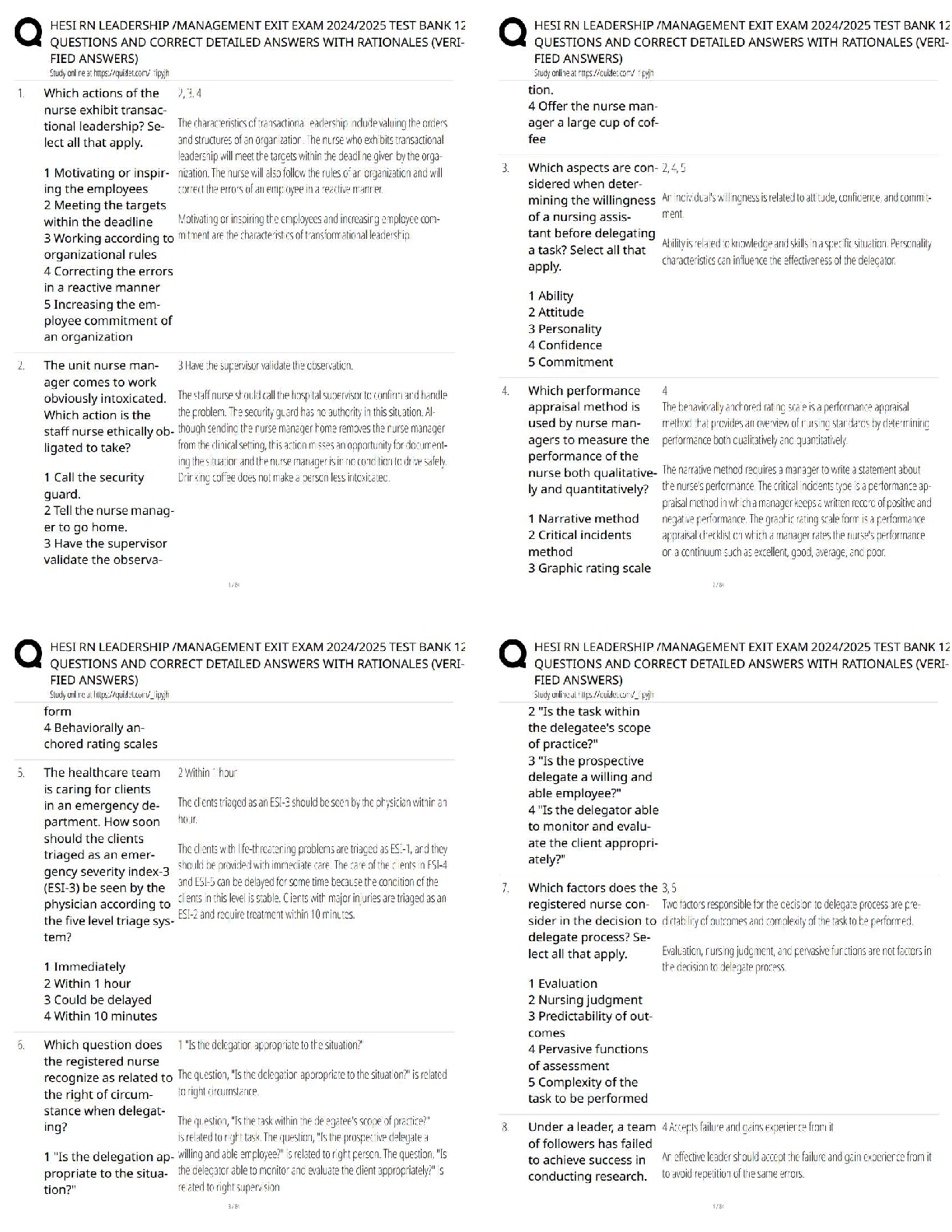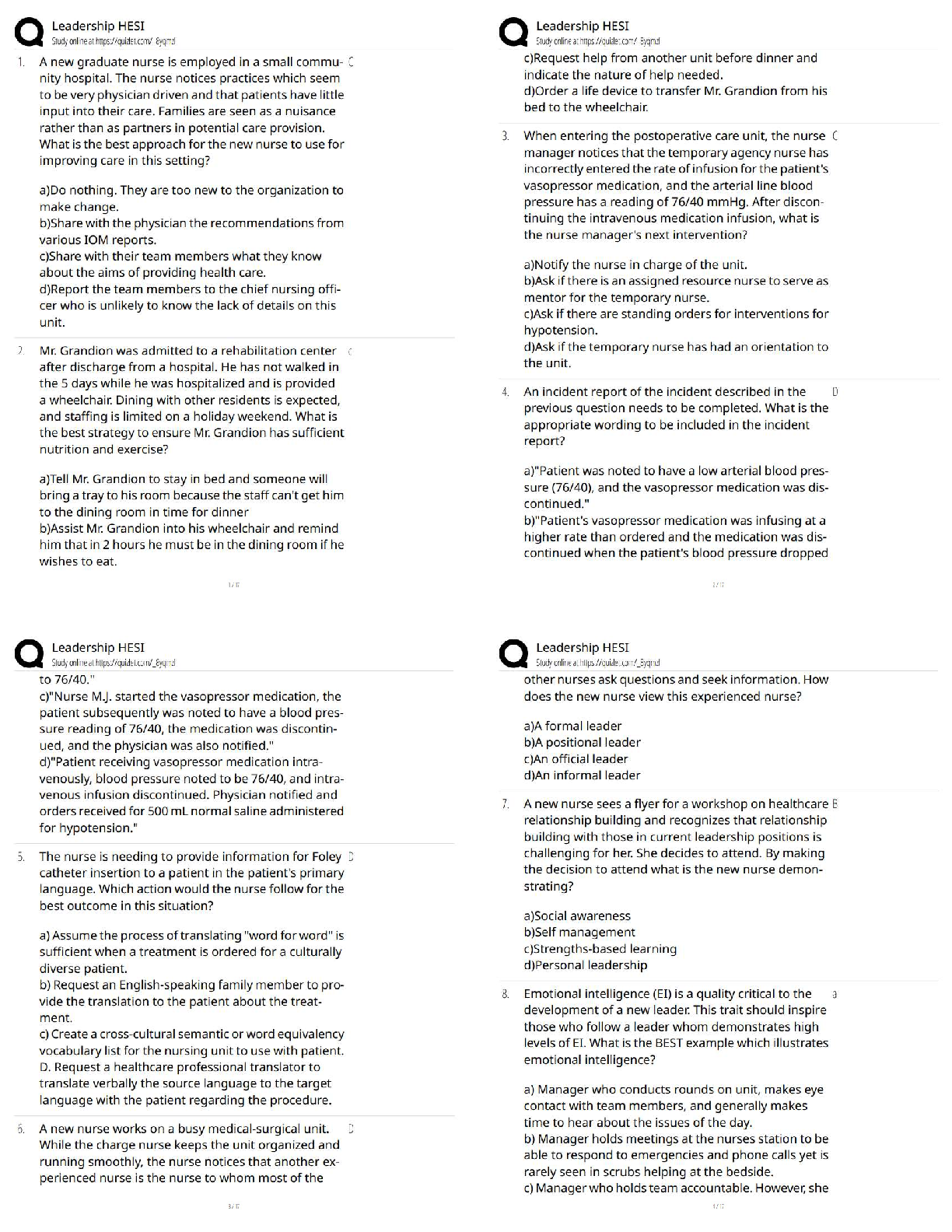Business Law > QUESTIONS & ANSWERS > Business Law Test 3: Part 1. Questions and answers. True/False (All)
Business Law Test 3: Part 1. Questions and answers. True/False
Document Content and Description Below
Citizenship and national origin are the same - ✔☑☑False In the case of Garcia v. Spun Steak Co., the court followed the Equal Employment Opportunity Commission's (EEOC) guidelines and held tha ... t the English-only rule in the workplace violates Title VII of the Civil Rights Act of 1964 - ✔☑☑False The discharge of a teacher from her services is upheld when, although fluent in English, she spoke with such a thick accent that her students found it difficult to follow her. - ✔☑☑True The Equal Employment Opportunity Commission (EEOC) is charged with combating civil rights violations against Arab, Sikh, and South-Asian Americans, as well as those who are perceived to be members of those groups. - ✔☑☑False The Equal Employment Opportunity Commission (EEOC) created a special classification, "Code Z," to designate complaints from undocumented workers regarding workplace abuses - ✔☑☑False The Immigration Reform and Control Act (IRCA) allows discrimination in favor of U.S. Citizens (as opposed to non-U.S. Citizens legally residing in the U.S.) but only so long as the employer can demonstrate that citizenship is a BFOQ. - ✔☑☑False Innocent or negligent discrimination is a defense to a claim of discrimination under the Immigration Reform and Control Act (IRCA). - ✔☑☑True An employer who enters into a contract with a government agency has an affirmative obligation to ensure that Asians are hired and retained without regard to their religion or national origin based on the Guidelines on Discrimination Because of Religion or National Origin. - ✔☑☑FalseThe Immigration Reform and Control Act (IRCA) requires that a court find an employer liable for national origin harassment even if most would say that the conduct is not offensive and the individual involved is just overly sensitive. - ✔☑☑False Criminal penalties can be imposed for violations of the Immigration Reform and Control Act (IRCA). - ✔☑☑True In King v. Township of East Lampeter, the court found that the Amish are a distinct racial group and have a separate ethnic identity beyond religious observance. Thus they were protected under section 1981. - ✔☑☑False An employer may decide to not hire an applicant solely because they wear a headscarf or turban if there is a policy in place stating that employees may not wear hats, etc. at work. - ✔☑☑False National origin was included in Title VII's list of protected classes: A) To ensure that illegal immigrants are given a fair chance at employment. B) As a last-minute attempt to add controversy to the legislation so that it would not be enacted. C) To ensure that employers do not make employment decisions based on preconceived notions about employees' or applicants' country of origin. D) To satisfy international critics of the legislation who suggested that the protection it afforded was simply not enough. - ✔☑☑C) To ensure that employers do not make employment decisions based on preconceived notions about employees' or applicants' country of origin. Nesbitt hires Francois, an alien working in the United States with the legal authority to do so. One month later, Francois loses his right to work in the United States. Which of the following holds true in this case? A) Nesbitt's continued employment of Francois cannot constitute a violation of the Immigration Reform and Control Act (IRCA) under any circumstance. B) Nesbitt's continued employment of Francois will constitute national origin discrimination against individuals with American citizenship. C) Nesbitt's continued employment of Francois will constitute a violation of the Immigration Reform and Control Act (IRCA) if Nesbitt knows that Francois has become an unauthorized alien. D) Nesbitt's continued employment of Francois is not unlawful because it is an unfair immigrationrelated practice for a person to discriminate against any individual based on their national origin -✔☑☑C) Nesbitt's continued employment of Francois will constitute a violation of the Immigration Reform and Control Act (IRCA) if Nesbitt knows that Francois has become an unauthorized alien. Melanie, a white female employed at The Office Corner for three months, is married to Muhammad, who is of Middle Eastern descent. Melanie has been subjected to verbal abuse almost every day ever since her co-workers became aware of her husband's ethnicity. She has been called a "traitor" and a "terrorist." Her co-workers refuse to work with her, and her supervisor condoned this behavior by assigning her tasks in the stockroom when previously, she assisted customers in the electronics department. Which of the following holds true in this scenario? A) Melanie does not have a national origin discrimination claim under Title VII of the Civil Rights Act of 1964 because she is not a member of a protected class. B) Melanie does have a national origin discrimination claim under Title VII of the Civil Rights Act of 1964 because she is being harassed based on the national origin of her husband. C) Melanie does not have a national origin discrimination claim because she has only been employed for three months. D) Melanie does have a discrimination claim based on race only if she is a citizen of the United States. - ✔☑☑B) Melanie does have a national origin discrimination claim under Title VII of the Civil Rights Act of 1964 because she is being harassed based on the national origin of her husband. Magda comes to work in clothes that are highly reflective of her national origin. This happens to violate the dress code of her workplace. After being politely asked to follow the office dress code several times by her supervisor, Magda is finally asked to return home and change into clothing that conforms to the company's dress code. Which of the following holds true if Magda decides to file a discrimination claim based on national origin? A) Magda has a claim under Title VII of the Civil Rights Act of 1964 for national origin discrimination because it guarantees her the right to freedom of cultural expression. B) The employer can defend the dress code if it can show that Magda's attire overlaps with her religion. C) Magda's employer can defend the dress code because Title VII of the Civil Rights Act of 1964 does not require an employer to accommodate an employee's attire of national orig [Show More]
Last updated: 3 years ago
Preview 1 out of 13 pages
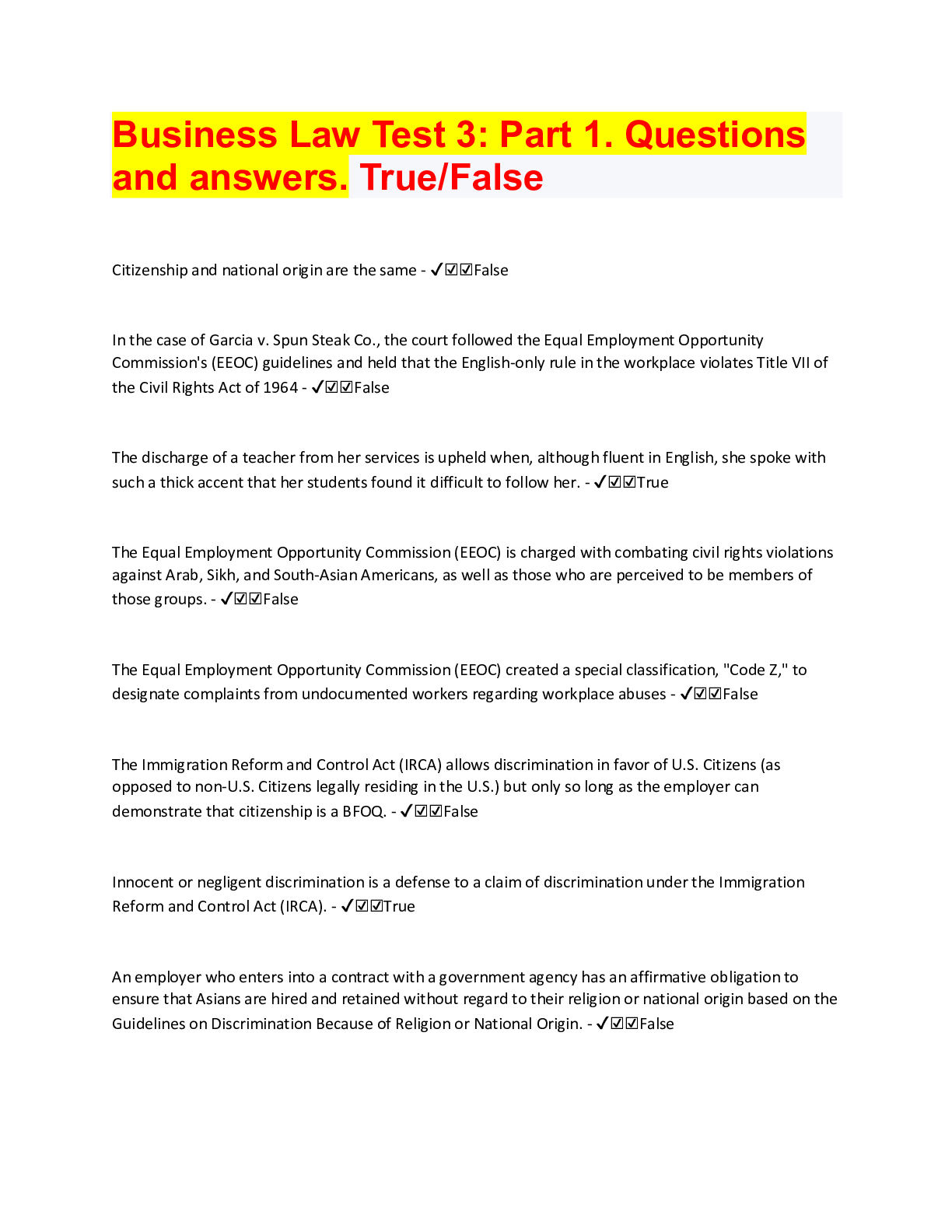
Buy this document to get the full access instantly
Instant Download Access after purchase
Buy NowInstant download
We Accept:

Also available in bundle (1)
Click Below to Access Bundle(s)

BUSINESS LAW BUNDLE.. QUESTIONS AND ANSWERS. RATED A MASTERPIECES
COMPREHENSIVE BUNDLE CONTAINING. 4 versions of business law tests questions and answers.
By bundleHub Solution guider 3 years ago
$25
4
Reviews( 0 )
$13.00
Can't find what you want? Try our AI powered Search
Document information
Connected school, study & course
About the document
Uploaded On
Jul 14, 2022
Number of pages
13
Written in
All
Seller

Reviews Received
Additional information
This document has been written for:
Uploaded
Jul 14, 2022
Downloads
0
Views
190




